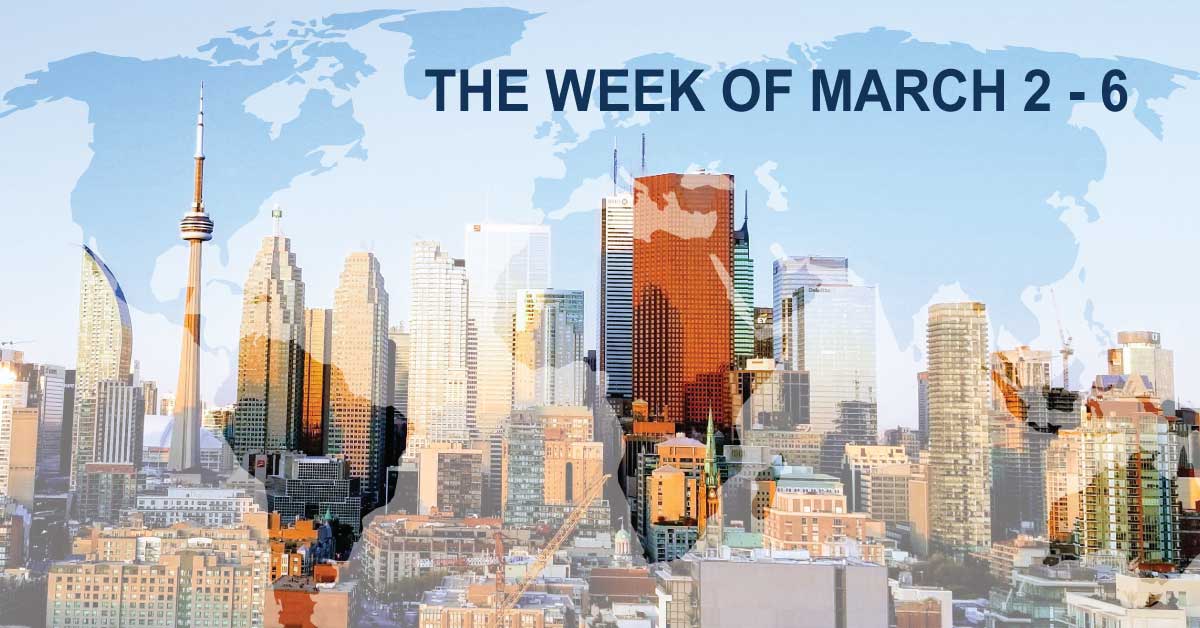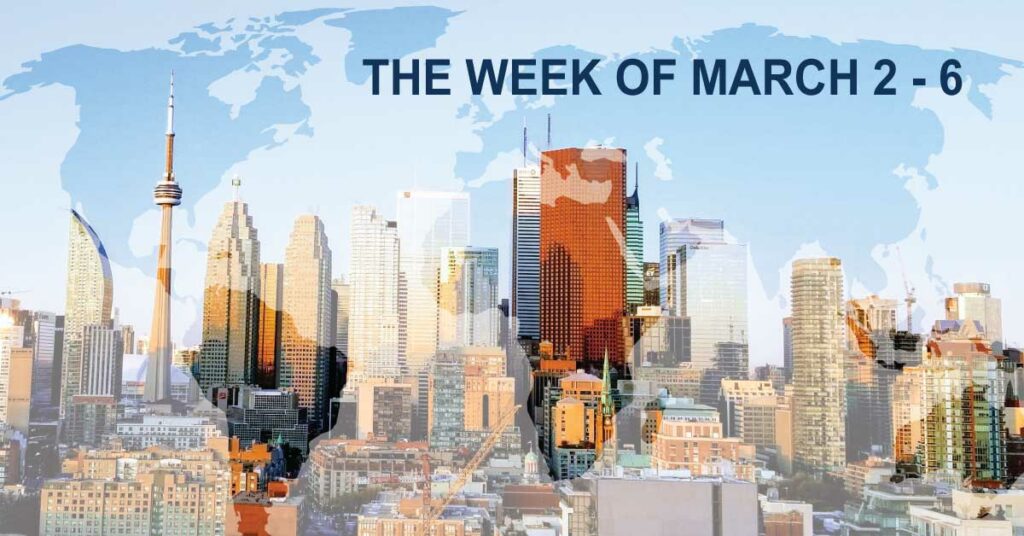
William’s Weekly Economic Recap
for the Week of March 2 – March 6, 2020 (view as PDF)
William Chin, MBA
Portfolio Manager & Chief Technical Analyst
William Chin, Chief Technical Analyst for Caldwell Investment Management Ltd. (“Caldwell”), is the lead Portfolio Manager on the Tactical Sovereign Bond Fund and Portfolio Manager for the fixed income portion of the Caldwell Balanced Fund. He also advises fixed income portfolios for affiliate Caldwell Securities Ltd.’s separately managed account platform and contributes to the Caldwell Investment Management Ltd. team’s research, specializing in macro-economics, currency risk management and technical analysis. William is a member of Caldwell’s Investment Risk Committee.
William has over 35 years of international investment experience in the areas of portfolio, currency risk and treasury management. He began his career in the currency market, progressing to the role of treasury manager for a large international bank. He was first registered as a Portfolio Manager with the Ontario Securities Commission in 1999 and managed high net worth client portfolios on a discretionary basis prior to joining Caldwell.
William has an MBA in economics and international finance. He has been a volunteer and a board member for the Canadian Society of Technical Analysts since 2001 and is their former President (2012-2014).
William is a frequent speaker on macro analysis, monetary policy and technical analysis.
Macro Update
- On Tuesday, the Federal Reserve announced an intermeeting, emergency cut of 0.50% in the Fed funds rate band to 1.00% – 1.25%. The interest rate markets are now fully pricing in another 0.50% cut in the March 17- 18 Federal Reserve Open Market Committee meeting.
- On Wednesday, the Bank of Canada cut its benchmark interest rate by 0.50% to 1.25%, citing the negative impact on Canada from the coronavirus. It adds, “Business activity in Canada does not appear to be recovering as had been expected after positive trade developments.”
- Government bond yields collapsed as risk aversion intensifies. The media is uncovering that the capacity for COVID-19 testing is seriously lacking in the U.S., which is feeding risk aversion.
- Russia did not participate in the larger production cuts OPEC tried to achieve. The OPEC meeting failed to come to any conclusion. Crude oil prices fell.
- U.S. Institute for Supply Management (“ISM”) manufacturing Purchasing Managers’ Index (“PMI”) came in at 50.1.
- Surveys of the U.S. service sector produced conflicting data. The ISM published stronger readings but Markit posted below 50.0.
- U.S. February ‘nonfarm payrolls’ rose 273,000. Cumulative revision for December and January was a positive 85,000. “Average hourly earnings” gained 0.3% m/m, it is a strong report, but the survey period was midJanuary to mid-February so the report is not useful given the current crisis.
- Canada reported a gain of 30,300 jobs in February.
- Canada Q4 labour productivity fell 0.1%, after a 0.2% gain in Q3.
- China’s passenger car sales fell 80% in February.
- China’s official manufacturing PMI fell sharply to 35.7. ‘Nonmanufacturing’ (services) fell to 29.6. Caixin’s (private sector survey firm) version fell to 40.3.
- China Caixin/Markit Services (PMI) collapsed to 26.5. The broader Composite index fell to 27.5. Both are deep in contraction mode.
- Eurozone February manufacturing PMI edged up slightly to 49.2. Germany and France also improved slightly; Italy a little worse. All are still in contraction mode.
